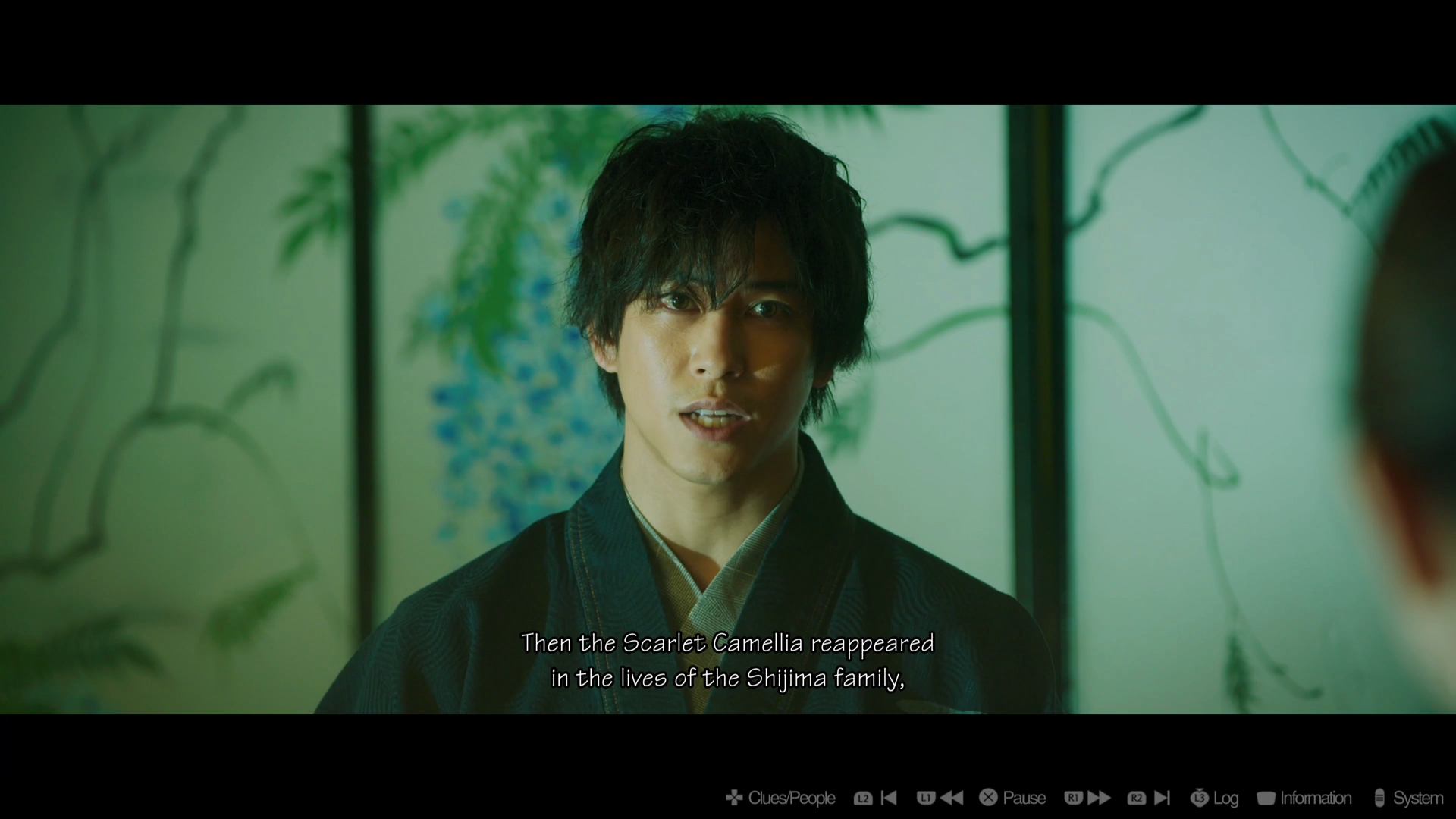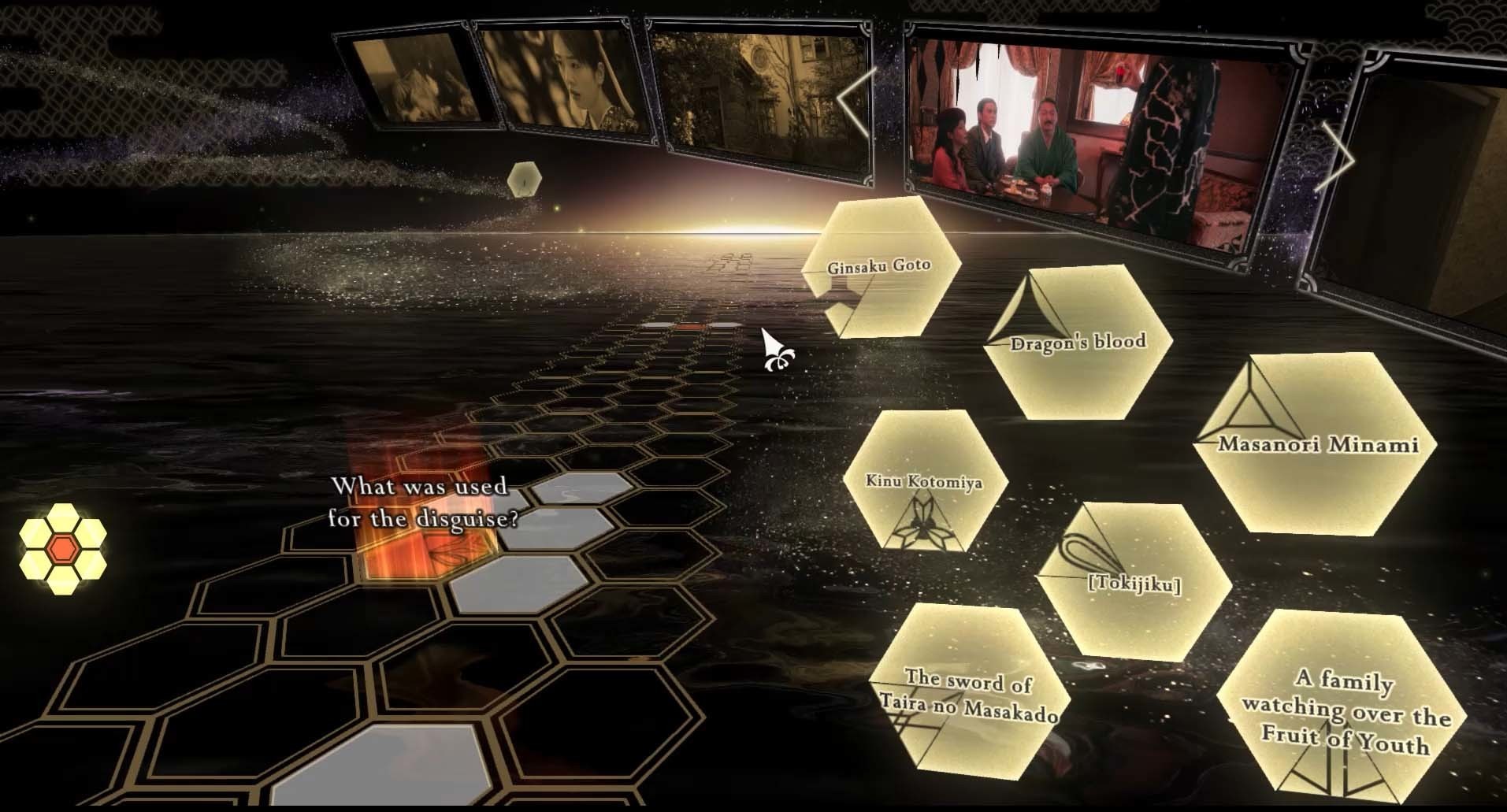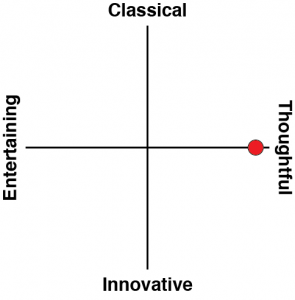Square Enix is one of those companies that I tend to trust (at least, until the company starts doing NFTs) so I was beyond excited to learn it was publishing an FMV whodunnit, The Centennial Case: A Shijima Story. It combines FMV with a puzzle-like scenario required to solve every case. I had high, high hopes for this game, and was excited to find out if I was right. Just a quick note before I begin: Square Enix very much wants the world not to be spoiled (I can’t even take my own screenshots!), so when it comes to plot specifics I’m going to be pretty vague.
The game follows mystery writer Haruka Kagami and her scientist partner, Eiji Shijima, as they try to discover the secrets of the Shijima family. It all begins with the Fruit of Youth, and Eiji wanting to know if it actually exists so he can study it to stop the aging process. It quickly turns into multiple whodunnits, as there have been many suspicious deaths taking place in and around the Shijima family. Haruka is the main detective, while Eiji has a supporting role despite being the key to the family. He knows the science behind things, which is why Haruka relies on him. The bulk of the solving is on her, though, as it happens in her mind (her “Cognitive Reasoning Space”) and she imagines what Eiji would have to say.
The Cognitive Reasoning Space is intense. The closest thing I can compare it to it Sherlock Holmes’ Mind Palace in the Frogwares series. In it, Haruka pieces together clues to form hypotheses, and hypotheses to solve mysteries. It’s a bit complicated to describe, so definitely check out the latest trailer (below) to understand what I’m talking about. There’s a board of hexagonal tiles on the left side, with some tiles highlighted as mysteries. There are blank tiles around the mysteries, and these need to be filled with clues. Clues are found by scrolling through each scene of the chapter and picking out what’s most important. The best part is that you can’t put the wrong clue in the wrong place, it will only snap if it’s correct. So if you’re stuck, trial and error is more than enough. Clues can be helpful or steer you in a completely wrong direction (no, nobody threw a sword through the dead guy).
There are specific rules to solving the mysteries that help make the right path a bit more obvious. One, there is only one killer per case (no accomplices). Two, superhuman or paranormal activity can be ruled out (no, nobody has superhuman strength). Third, those who appear to have no reason to kill the victim might be hiding an ulterior motive (can confirm, motive means less than the facts sometimes). If you get the killer wrong, you can keep trying. The only thing that happens is your rank at the end of the chapter goes down the more mistakes are made.
The actors play different characters in different eras, so that Haruka can visualise what she learns to help solve the case. The acting itself is quite over-the-top, but I maintain that’s what I crave and expect from FMV games. I want them to verge on being soap operas, basically. The original Japanese voice track is easily the best, as there is something that sounds kind of silly with the English dub; I think it’s just because the game is so inherently Japanese that the English language stands out as unnatural and doesn’t do it justice.

I compared Haruka’s Cognitive Reasoning Space to Holmes’ Mind Palace in a completely different series from a completely different developer, but that’s not where the similarities end; the way the mystery unfolds, the little hints along the way, the red herrings – The Centennial Case: A Shijima Story actually remind me of the original Sherlock Holmes narratives. The game plays like a mystery novel reads. There is something classic about the way the clues are dripped out little by little until all of a sudden you realise you’re collapsing under the weight of them all, needing to sort them out. Good thing there’s that Reasoning Space!
The Centennial Case: A Shijima Story has one of the beefier information menus I’ve ever seen, and I mean that in the best way. It’s got everything you might need to look back at to help solve a case. The relations screen shows who is involved in what case. There’s also lists of mysteries, clues, and hypotheses divided by chapter. There’s a handy timeline that helps makes sense of jumping back and forth through the decades.
The game doesn’t have a lot of accessibility options, just closed captioning. It would have been nice to at least have a way to make text bigger, as on some screens there’s a lot of room and teeny-tiny little text. If I spend too much time in the Cognitive Reasoning Space (and I’m quite slow), I get pretty bad headaches, though I’m not sure if that’s text-related or movement-related (things scrolling vertically and horizontally at the same time can mess with me sometimes). Regarding chronic pain issues, none of the gameplay really caused anything to flare; the FMV sequences are pretty chill to control.

There’s something about the title – The Centennial Case: A Shijima Story – that makes me think this one game may only be the beginning of something wonderful. Maybe the Shijima family has more mysteries? Maybe other families need Haruka and Eiji to solve their mysteries? Maybe I’m just so obsessed with the game I need more of it? Yeah, that last one sounds pretty plausible. But the game is basically foolproof (unless you mess up really, really badly, which in my experience isn’t terrible likely), it’s in the FMV genre, it’s a whodunnit, it plays like a novel reads… who doesn’t want more games like that?!










Sounds great. I’ve also been excited for the chinese fmv the Underdog detective. It’s a prequel to a tv period drama that I haven’t watched, but it still looks great.
There’s several conventions for what’s a good fmv’s or visual novels, like having player choices that changes the story’s outcome, etc. But honestly, I’ve been enjoying a visual novel with almost no interactivity. I put it on auto-text and have breakfast or lunch while it goes on.
I’m looking for a good fmv story that I can do the same. At least for 15-20 minutes at a time. I can do the investigation part while digesting.
I’ve played some cases and I’m really enjoyed it!
1. Games really are an interesting medium for mystery novels. It can make you follow the reasoning of characters more closely than TV and movies. And that you can is also a sign of high craftsmanship.
2. Another advantage is that I’m playing together with my brother. A book is not so easy for multiple people to follow along exactly at the same pace. Movies don’t have the pauses created by game choices that allow for discussion between audience members. All in all, a great experience. “only in video-games”, etc.etc. tm copyright.
3. This story really is a huge homage to the mystery literature genre. In the information menu, if you go to “analysis” and read the item “tricks” you can see Edogawa Ranpo being name dropped. The pen name has the same Japanese reading as Edgar Alan Poe. These people really love mystery stories and wear their heart on their sleeves.
With square’s brand and money behind it, maybe this will reach people who don’t usually play mystery games and I think they will love it. A marketing issue it faces is how it is not a game you can easily stream.
I’m not even gonna read this to prevent being spoiled or influenced. I just came across this. I love fmv games. When I saw on steam there’s an fmv game published by Square Enix I put it in my list. Don’t need to know more.
More big budget FMV games would be just wonderful hey 😀